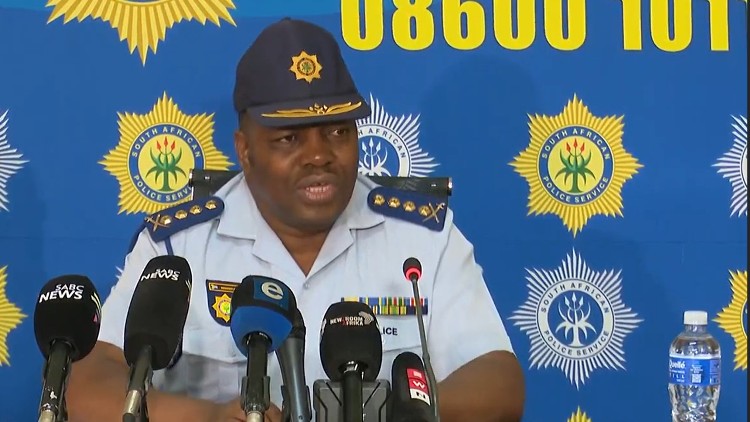SAPS Commissioner Testifies at Madlanga Commission on Justice System
The establishment of the Madlanga Commission comes amid growing concerns about corruption and political manipulation within South Africa’s law enforcement and justice system.

- Country:
- South Africa
The Judicial Commission of Inquiry into Criminality, Political Interference, and Corruption in the Criminal Justice System — more commonly known as the Madlanga Commission — continued its hearings today with testimony from National Police Commissioner Fani Masemola. His appearance marks a pivotal moment in the inquiry as it seeks to expose systemic weaknesses and political meddling in South Africa’s justice and policing institutions.
Building on Testimony Already Heard
Masemola’s testimony follows last week’s evidence by KwaZulu-Natal Police Commissioner, Lieutenant General Nhlanhla Mkhwanazi. Over three days, Mkhwanazi detailed his concerns regarding political interference in police operations, allegations of corruption, and challenges in leadership accountability. His statements set the stage for further probing into how political influence has impacted policing at both provincial and national levels.
Public Access to the Commission
The Commission has emphasized the importance of transparency in its proceedings. Members of the public can follow hearings live via the official Commission website — www.criminaljusticecommission.org.za — as well as through radio, television, and social media platforms.
For those who wish to attend in person at the Brigitte Mabandla Justice College in Pretoria, entry requires a valid ID or driver’s licence. Strict security protocols are in place, with weapons prohibited on the premises. “The public will be able to follow the hearing via livestream… We remind attendees to bring identification, and no weapons will be permitted,” Commission spokesperson Jeremy Michaels said.
Parliament Invites Public Submissions
Parallel to the Commission’s work, Parliament’s Ad Hoc Committee — tasked with investigating the allegations raised by Commissioner Mkhwanazi — has invited members of the public and organisations to make written submissions relevant to the scope of the inquiry.
Section 59(1)(a) of the Constitution requires Parliament to facilitate public involvement, ensuring South Africans have a direct say in the accountability process. The committee has clarified that only submissions that fall within the inquiry’s scope will be considered. All submissions must be under oath or affirmation, and supporting documentation is encouraged.
Individuals or organisations needing assistance in preparing sworn statements can request support from the committee. Submissions should be emailed to adhocmkhwanazi@parliament.gov.za, and further enquiries can be directed to:
-
Mr V Ramaano: 083 709 8427
-
Adv P Gwebu: 083 709 8395
-
Ms B Mbengo: 083 709 8489
A Commission of National Importance
The establishment of the Madlanga Commission comes amid growing concerns about corruption and political manipulation within South Africa’s law enforcement and justice system. Its mandate is to uncover how deep-rooted interference has compromised the credibility and effectiveness of institutions tasked with upholding the rule of law.
Cabinet has already welcomed the commencement of the inquiry, underscoring its importance for accountability, public trust, and strengthening democratic institutions. With high-profile figures like Masemola giving evidence, the Commission is expected to shed light on entrenched problems and recommend reforms that could reshape policing and justice in the country.
As hearings progress, the Commission will continue to call witnesses from across the justice and security sectors. The public is encouraged not only to observe but to contribute evidence, ensuring that the inquiry reflects the lived realities of South Africans affected by corruption and political interference.
ALSO READ
Unification Church Leader Faces Legal Battle Amid Corruption Probe
Uproar in Manila: Corruption Scandal Ignites Clashes
Ex-Polish Official Faces Extradition Battle Amid Corruption Allegations
TVK chief Vijay says his party's goal is to see a Tamil Nadu without corruption.
India's Security Challenges: Corruption and Proxy Wars










